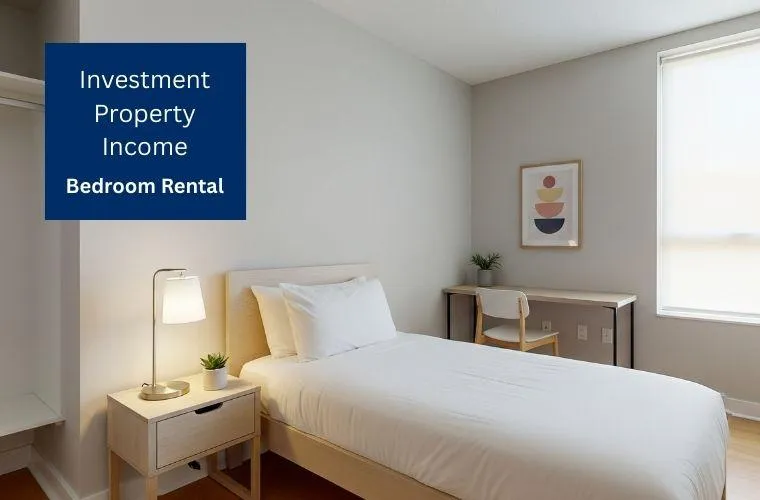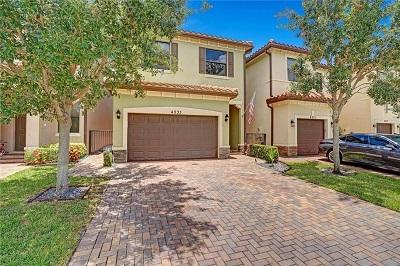How to Rent Out Your Investment Property
Long-Term Stability vs. Short-Term Cash Flow
Whether you own one investment property or multiple cash-flowing properties, there are ways to produce rental income. So, what's the best to rent out your home, condo, townhome or multi-unit to produce income that makes sense. The answer is not always the same for everyone. Some investors value stability, wanting a tenant who pays on time every month, stays for years and keeps the property in good condition. Other investors are willing to accept a little more uncertainty in exchange for higher income potential by renting the property through platforms like Airbnb. Certain landlords are experimenting with renting individual rooms using services such as PadSplit, where income can be maximized but management is more involved.
Each approach has its own rhythm, risks and rewards. If you have ever found yourself asking whether you should go with a traditional lease, dive into the short-term rental market or test out the shared housing model, here is a closer look at how each works—and which one might fit your investment goals.
The Traditional Lease: Stability and Predictability
The most common rental model is the long-term lease. Typically, this means signing a tenant to a one year agreement, sometimes longer, where they pay monthly rent and cover utilities, or some portion of them.
The appeal here is easy to understand that its stable. You know how much is rental income is coming each month, and you do not need to constantly market the property or deal with frequent turnovers.

A conservative, traditional investor may purchase a three-bedroom single-family home in Boca Raton. The investor finds a reliable family who wants to live there for at least two years. They pay $4600 per month in rent, and outside of the occasional maintenance call, your cash flow is steady. This is the kind of predictability that many investors appreciate, especially if they are financing the home with a mortgage.
Of course, there are drawbacks. If you set the rent too low, you are locked into that number for the duration of the lease, even if market rents rise. If you set it too high, the property may sit vacant while you search for a tenant willing to pay the premium. There is also the possibility of a tenant not paying which even with legal protections, can disrupt cash flow for months.
Airbnb, VRBO and Other Short-Term Rentals: Flexibility and Higher Income Potential
Over the past decade, Airbnb, VRBO and other short-term rental platforms have completely changed the game. Instead of renting your property to one family for a year, you can rent it by the night, week, or month.
Let’s say you own a two-bedroom Miami condo. As a long-term rental, it might fetch $3,400 per month. But on Airbnb, you could rent it for $300 per night. If you’re able to book just 12 nights in a month, you have already exceeded the long-term rental income. Anything beyond that is extra.
This model allows for significantly higher earning potential, especially in vacation friendly markets like South Florida. Properties near the beach, downtown attractions or universities can do especially well.
The trade off is the amount of effort involved. You will need to furnish the property, handle cleanings between guests, coordinate check-ins, and manage guest communications. You will also need to be aware of local regulations, as many cities in Florida have cracked down on short-term rentals, requiring permits and imposing occupancy limits.

Renting by the Room: Shared Housing and Platforms like PadSplit
A third option that’s gaining momentum is renting out individual rooms rather than the entire property. Services like PadSplit are designed specifically for this, making it easier for landlords to manage shared housing.
Here is how it works in practice. If you own a four-bedroom house in Hollywood, FL, instead of renting it to one tenant for $2,800 per month, you can rent each room individually for $1100. Fully occupied, that property could now bring in $4,400 per month instead of $2,800.
This model allows you to maximize income from a single property, and in some markets, it fills a much needed housing gap for renters who cannot afford an entire apartment or house on their own.
The challenge, of course, is management. Renting by the room means multiple personalities under one roof, more wear and tear on the property, and a greater need for oversight. Some investors thrive in this environment, while others find it too hands-on. Services like PadSplit can help, but its still not as passive as a traditional lease.

Obtaining a Mortgage for an Investment Property
If you are investor or thinking about purchasing an investment property, and need a mortgage, there are a few options. Depending on your income, you may qualify for a conventional mortgage for an investment property. This can often require a 15 to 20% down payment, depending on the type of property (i.e. house vs townhome vs condo vs multi-family).
Even if you don't show sufficient income on your documents, such as tax returns, 1099s or W2s, don't worry. There are other mortgage options. One popular option is the DSCR loan. This can allow an investor to purchase an investment property with at least 20% down payment and will not have any income verification. Instead of using the investor's income, the underwriter can utilize the projected rental income that the property will derive. The underwriter wants to ensure that the rental income you will be receiving covers the principal, interest, taxes and insurance. If the property has a HOA, that needs to be factored in as well.
Choosing the Right Strategy for Your Goals
So which option is best? The answer depends largely on your priorities as an investor.
If you’re looking for stability and lower stress, a long-term lease is usually the way to go. You’ll get consistent income and won’t need to worry about constant tenant turnover.
If you’re aiming for maximum cash flow and you don’t mind a more active role, Airbnb can provide higher returns, especially in high-demand areas.
If you’re a more entrepreneurial investor and you’re comfortable with the complexity of shared housing, renting by the room may be your most profitable option.
Ultimately, many investors find that a mix of strategies works best. For example, you might keep one property as a long-term rental to provide steady income, while testing out short-term rentals or room-by-room strategies with another property to boost returns.
Investing in real estate has always been about balancing risk and reward. The way you choose to rent out your property is no different. Long-term leases provide peace of mind, short-term rentals offer flexibility and higher income potential, and room-by-room rentals push the boundaries of profitability.
What matters most is finding the approach that fits your lifestyle, your risk tolerance, and your long-term financial goals. Whether you value predictability, are chasing higher returns, or enjoy experimenting with new housing models, there’s a rental strategy that can align with the way you want to invest.
For some, that might mean signing a steady tenant and checking in once in a while. For others, it might mean turning their property into a boutique Airbnb experience. And for the more adventurous, it could mean renting out rooms one by one and creating a steady stream of cash flow that far exceeds a traditional lease.
The beauty of real estate investing is that you’re not locked into just one way of doing things. As your goals evolve, your rental strategy can evolve too.
For more information on obtaining a mortgage on an investment property or taking cash-out of an existing investment property you have, please contact us. We will be happy to assist you.
Mortgage Insight:
Purchasing a Home with a Conventional Loan
VA Loan Success Story with Eric and Denise
How a VA Loan in Ocala, FL changed a Family's Financial Future
Can I Use My VA Loan in a Chapter 13 Bankruptcy?
Can a Fiance or Kids be on a VA Loan?
Veterans Who Buy Homes See Far Higher Net Worth Than Renters
How Much Mortgage Insurance Can I Save with a VA Loan?
What to Avoid in a Home When Obtaining a VA Loan Appraisal?
Duplex Property in Fort Lauderdale Quadruples in Value and Leaves a Nest Egg to the Heirs
How a California Remote Worker Obtained a Mortgage to Relocate to Boca Raton, FL
What's the Average Mortgage in Fort Lauderdale, FL?
What Factors are in my Credit Score for a Mortgage?
What Documents Do You Need for a No Income Verification Mortgage?
Restaurant Owner Obtains Self-Employed Home Loan
Can a General Contractor Obtain a No Income Verification Mortgage?
Is a HELOC or a Cash Out Refinance Better to Pay for a New Roof?
Can a Collection Prevent Me from Getting a Mortgage?
Do I Have to Make Mortgage Payments if I Lose My Job?
How to Rent Out Your Investment Property
What Portion of a Mortgage Payment Goes Towards Insurance

Your mortgage journey.
Various loan type options including:
Conventional loan
FHA loan
VA loan
Self-employed loan options
No income verification for investors
Benefits of Homeownership
Homeownership is a significant milestone and a decision that offers many advantages. In addition to providing a place to call your own, owning a home brings financial stability, personal fulfillment, and a sense of belonging. Mortgage Group has been helping individuals and families obtain homeownership, guiding them through the process and obtaining referrals to help their family and friends accomplish the same.

Purchase
Get pre-approved to purchase your first home, second home or upcoming investment property.
Refinance
Own a property and interested in lowering your payment? Need to take cash out? Refinance with confidence.
Connect with Us
Our experienced team with be happy to speak with you, and walk you through each step of the process.

Providing mortgage solutions to help you with your home.
Mortgages can be complicated and have many moving parts. Let our team help you!
Contact Us
It only takes a few moments to reach out and have an initial conversation.
Know the Next Steps
Our team will work with you to find the best way to achieve your home loan goals.
Find Your Home and Get Your Loan
Our team will be prepared to move with the next steps once you have secured your home purchase contract.
Houses

Townhomes

Condos

Multi-Units

Some of the areas where we have helped individuals obtain a mortgage:
Miami-Dade County
Bal Harbour, FL
Coconut Grove, FL
Coral Gables, FL
Cutler Bay, FL
Eastern Shores, FL
Fisher Island, FL
Golden Beach, FL
Hialeah, FL
Hialeah Gardens, FL
Homestead, FL
Indian Creek, FL
Miami Beach, FL
Miami Gardens, FL
North Miami, FL
North Miami Beach, FL
Pinecrest, FL
Surfside, FL
Broward County
Cooper City, FL
Coral Springs, FL
Dania Beach, FL
Davie, FL
Deerfield Beach, FL
Doral, FL
Fort Lauderdale, FL
Hallandale Beach, FL
Hollywood, FL
Lauderdale by the Sea, FL
Lauderdale Lakes, FL
Lauderhill, FL
Lighthouse Point, FL
Margate, FL
Miramar, FL
North Lauderdale, FL
Oakland Park, FL
Parkland, FL
Pembroke Pines, FL
Plantation, FL
Pompano Beach, FL
Southwest Ranches, FL
Sunrise, FL
Tamarac, FL
West Park, FL
Wilton Manors, FL
How much home can I afford?

Which home loan program is right for me?

Contact our team today.
1-800-583-5305
© Copyright 2025 E Mortgage Capital, Inc.. All rights reserved.
- 1416824 | E Mortgage Capital, Inc.
Notice To Texas Loan Applicants: Consumers wishing to file a complaint against a mortgage banker, or a licensed mortgage banker residential mortgage loan originator, should complete and send a complaint form to the Texas Department of Savings and Mortgage Lending, 2601 North Lamar, Suite 201, Austin, TX 78705. Complaint forms and instructions may be obtained from the department’s website at www.sml.texas.gov
A toll-free consumer hotline is available at 1-877-276-5550. The department maintains a recovery fund to make payments of certain actual out of pocket damages sustained by borrowers caused by acts of licensed mortgage banker residential mortgage loan originators. A written application for reimbursement from the recovery fund must be filed with and investigated by the department prior to the payment of a claim. For more information about the recovery fund, please consult the department’s website at
www.sml.texas.gov

